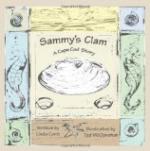Well, I suppose we didn’t. You see, Jonadab and me, like the rest of the folks around Wellmouth, had come to take Beriah Crocker and his weather notions as the regular thing, like baked beans on a Saturday night. Beriah, he—
But there! I’ve been sailing stern first. Let’s get her headed right, if we ever expect to turn the first mark. You see, ’twas this way:
’Twas in the early part of May follering the year that the “Old Home House” was opened. We’d had the place all painted up, decks holy-stoned, bunks overhauled, and one thing or ’nother, and the “Old Home” was all taut and shipshape, ready for the crew— boarders, I mean. Passages was booked all through the summer and it looked as if our second season would be better’n our first.
Then the Dillaway girl—she was christened Lobelia, like her mother, but she’d painted it out and cruised under the name of Belle since the family got rich—she thought ’twould be nice to have what she called a “spring house-party” for her particular friends ’fore the regular season opened. So Peter—he being engaged at the time and consequent in that condition where he’d have put on horns and “mooed” if she’d give the order—he thought ’twould be nice, too, and for a week it was “all hands on deck!” getting ready for the “house-party.”
Two days afore the thing was to go off the ways Brown gets a letter from Belle, and in it says she’s invited a whole lot of folks from Chicago and New York and Boston and the land knows where, and that they’ve never been to the Cape and she wants to show ’em what a “quaint” place it is. “Can’t you get,” says she, “two or three delightful, queer, old ’longshore characters to be at work ’round the hotel? It’ll give such a touch of local color,” she says.
So out comes Peter with the letter.
“Barzilla,” he says to me, “I want some characters. Know anybody that’s a character?”
“Well,” says I, “there’s Nate Slocum over to Orham. He’d steal anything that wa’n’t spiked down. He’s about the toughest character I can think of, offhand, this way.”
“Oh, thunder!” says Brown. “I don’t want a crook; that wouldn’t be any novelty to this crowd,” he says. “What I’m after is an odd stick; a feller with pigeons in his loft. Not a lunatic, but jest a queer genius—little queerer than you and the Cap’n here.”
After a while we got his drift, and I happened to think of Beriah and his chum, Eben Cobb. They lived in a little shanty over to Skakit P’int and got their living lobstering, and so on. Both of ’em had saved a few thousand dollars, but you couldn’t get a cent of it without giving ’em ether, and they’d rather live like Portugees than white men any day, unless they was paid to change. Beriah’s pet idee was foretelling what the weather was going to be. And he could do it, too, better’n anybody I ever see. He’d smell a storm further’n a cat can smell fish, and he hardly ever made a mistake. Prided himself on it, you understand, like a boy does on his first long pants. His prophecies was his idols, so’s to speak, and you couldn’t have hired him to foretell what he knew was wrong, not for no money.




